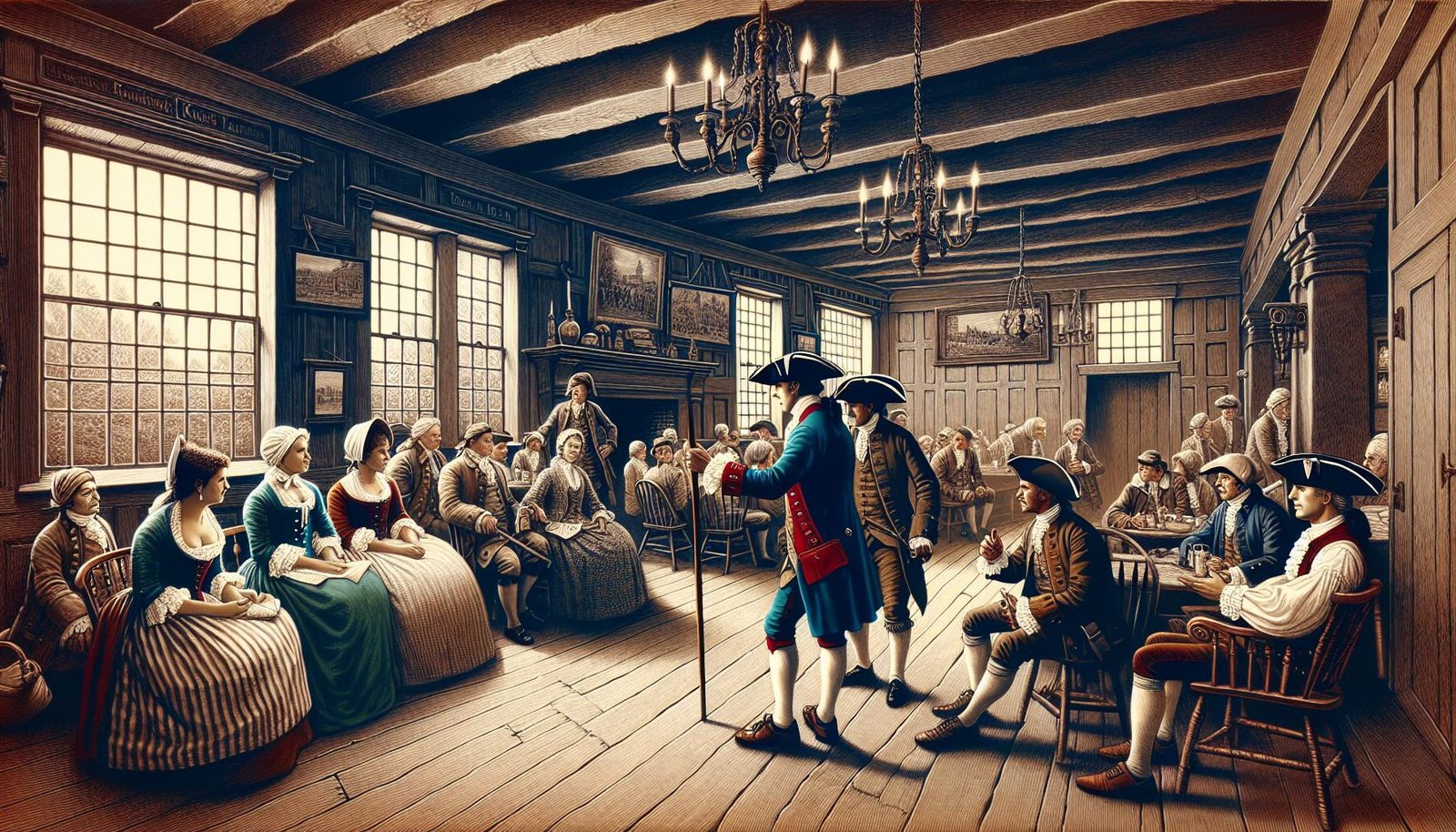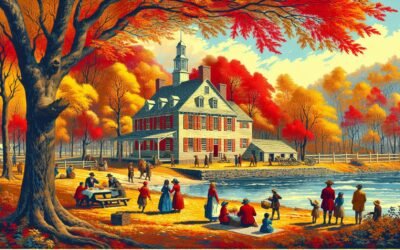I’ve always had a soft spot for the timeless charm of historic farms. There’s something about the rustic barns, the whispering fields, and the stories that seem to seep from the soil that draws me in. Burlington County, NJ, with its rich history and picturesque landscapes, is a treasure trove of such places.
Venturing into Burlington County feels like stepping into a living history book. Each farm has its own unique story, offering a glimpse into the past that’s both fascinating and grounding. Whether you’re a history buff, a nature lover, or just looking for a peaceful getaway, these farms are perfect spots to explore.
So, I decided to share my top picks for historic farms in Burlington County that you simply can’t miss. Trust me, they’re more than just a visit; they’re an experience that’ll stay with you long after you’ve left the fields behind.
Whitesbog Historic Village
When I first set foot in Whitesbog Historic Village, I knew I was stepping into a significant piece of New Jersey’s agricultural history. Nestled in the heart of Burlington County, this preserved farm and village is more than just a relic of the past; it’s a vibrant testament to the area’s contribution to farming and an incredible place for visitors to immerse themselves in the stories that shaped the region.
Whitesbog played a pivotal role in the history of the blueberry, believe it or not. Here’s a little-known fact that always astonishes those I share it with: Whitesbog is recognized as the birthplace of the highbush blueberry. Elizabeth Coleman White, the daughter of the farm’s founder, collaborated with botanist Frederick Coville to cultivate the first-ever commercial blueberry crops in the early 20th century. Their groundbreaking work transformed blueberry cultivation from wild gathering to a thriving agricultural industry. Every time I bite into a juicy blueberry, I’m reminded of White’s ingenuity and persistence.
The village itself is charmingly maintained, offering visitors a glimpse into rural life in the early 1900s. As I wandered through the historic buildings, including the general store, workers’ cottages, and the Suningive—the home of Elizabeth White—I felt like I’d traveled back in time. The sense of history is palpable, with each building and trail telling its own story of innovation, community, and resilience.
For those keen on exploring the natural beauty around Whitesbog, there’s no shortage of picturesque landscapes and trails weaving through cranberry bogs and blueberry fields. The tranquility of the Pine Barrens envelops the village, creating a serene backdrop for photography, bird watching, or simply enjoying a peaceful walk. During my visit, I was amazed by the diversity of birdlife, with the occasional glimpse of deer darting through the fields.
Additionally, Whitesbog hosts numerous events throughout the year, from blueberry festivals that celebrate the fruit’s legacy to guided moonlight walks that offer a unique perspective of the area’s natural beauty. These events provide a fantastic opportunity for anyone wanting to delve deeper into the culture and history of this remarkable place.
Smithville Mansion
Nestled in the heart of Eastampton, Burlington County, Smithville Mansion stands as a testament to the innovation and industrious spirit of the 19th century. As I delved into the history and charm of this illustrious site, it’s hard not to be captivated by the blend of entrepreneurship and architecture it embodies.
The mansion was once the epicenter of a thriving industrial village, owned by Hezekiah Bradley Smith, a notable inventor and politician. He’s famous for improving the American Star Bicycle, a revolutionary design that steered the biking industry in a new direction during the late 1800s. Exploring the mansion and its grounds, I could almost hear the faint echoes of past innovations and daily activities that once filled this historic estate.
What makes Smithville Mansion a fascinating visit isn’t just its rich history but also the well-preserved structures that allow visitors to step back in time. The mansion itself is a masterpiece of Victorian architecture, with each room telling a unique story of the Smith family and their contribution to American industry. Guided tours are available, providing an intimate glimpse into the lives of those who walked these halls over a century ago.
Apart from the mansion, the surrounding area is a sight to behold. The grounds feature several original buildings, including a blacksmith shop, wheelwright shop, and workers’ cottages, each serving as a reminder of Smithville’s bustling past. The site is also home to a museum that showcases artifacts, photographs, and documents related to the village’s industrial heritage.
Nature enthusiasts will find plenty to appreciate here as well. The estate is surrounded by picturesque trails and gardens, offering a peaceful retreat from the hustle and bustle of modern life. The lake, in particular, provides a tranquil setting for reflection or a leisurely stroll.
Throughout the year, Smithville Mansion hosts a variety of events that bring the community together and celebrate its historical significance. From antique shows to holiday tours, there’s always something happening that adds an extra layer of allure to the visit.
Peachfield
When I embarked on my exploration of Burlington County’s historic farms, Peachfield instantly grabbed my attention. Nestled within the heart of Westampton, this hidden gem embodies the essence of colonial agriculture and architecture. Originally acquired by the English Quakers in the late 1600s, Peachfield’s land whispers tales of early American pioneer spirit and innovation.
As I strolled through the expansive grounds of the farm, it became evident that Peachfield wasn’t just another historical site; it’s a window into the past, offering an immersive experience into the life and times of its former inhabitants. The main house, built in 1725 and expanded in the mid-19th century, showcases architectural styles that span centuries, meticulously restored to reflect its original glory.
- Restoration of colonial era farm buildings
- Guided tours that cover the history and significance of the site
- Educational programs designed to teach visitors about 17th-century farm life
One aspect of Peachfield that I found particularly fascinating was its commitment to education. Through hands-on workshops and reenactments, visitors get a unique opportunity to dive into colonial agriculture practices and domestic life. I was lucky enough to participate in a butter churning demonstration, a simple yet profound reminder of the labor that once defined daily life here.
Peachfield’s involvement in community and educational events stands out. Annually, the farm hosts historical reenactments, colonial cooking classes, and lectures on various topics ranging from horticulture to colonial attire. Each event is carefully crafted to offer insights into the complexities of colonial era livelihoods.
A visit to Peachfield wouldn’t be complete without meandering through its lush gardens. The gardens at Peachfield aren’t just a feast for the eyes; they’re a living classroom. Volunteers and historians at the site have gone to great lengths to ensure that the plants and landscaping accurately represent what would have been common during the farm’s early days. From medicinal herbs to traditional kitchen gardens, the diversity of plant life is astounding.
Beyond its historical significance and educational offerings, Peachfield serves as a serene retreat from the hustle and bustle of modern life. The calmness that envelops the farm, interrupted only by the occasional rustle of leaves or chirp of birds, invites visitors to reflect on the passage of time and the stories embedded in these ancient lands.
Historic Longstreet Farm
As I delve deeper into Burlington County’s treasure trove of historic sites, I can’t help but shine a spotlight on Historic Longstreet Farm. Nestled in Holmdel Park, this gem offers a unique glimpse into the daily life of a rural community in the 1890s. The farm, named after the Longstreet family who worked its lands for over two centuries, stands as a living museum where history comes to life with every step you take.
What sets Historic Longstreet Farm apart is its dedication to preserving the agricultural lifestyle of the past. The farm operates as it did in the 19th century, with staff members dressed in period attire performing daily chores ranging from blacksmithing to cooking on a wood-burning stove. It’s like stepping into a time machine, where the modern world fades away, and the rustic charm of the 1890s envelops you.
The farm doesn’t just appeal to history buffs. It’s a place where anyone can connect with the simpler aspects of life. You can watch as the farm animals, including horses, pigs, and chickens, go about their day, offering a real-world understanding of farm animal care and management which is rare to come by these days. And let’s not forget the gardens. They are cultivated using historical methods, adding an authentic touch to the already picturesque landscape.
Throughout the year, Historic Longstreet Farm hosts a variety of events that are both educational and entertaining. From blacksmith demonstrations to old-fashioned games and cooking classes, these activities provide visitors with hands-on experiences that are as informative as they are enjoyable. It’s educational outreach efforts like these that underscore the farm’s commitment to preserving not just the physical, but also the intangible heritage of the era it represents.
For families looking for an educational outing, or anyone intrigued by history and agriculture, Historic Longstreet Farm offers an experience that’s both enriching and enlightening. Walking through its grounds, amidst the echoes of the past, one can’t help but feel a deeper connection to the generations that once called this place home. It serves as a poignant reminder of how far we’ve come, and yet, how some aspects of life remain timeless.
Indian King Tavern Museum
After my enriching visit to Historic Longstreet Farm, I was eager to explore more hidden treasures tucked away in Burlington County, NJ. My next stop didn’t disappoint. The Indian King Tavern Museum, a historic gem with a pivotal role in New Jersey’s history, caught my attention. Nestled in the heart of Haddonfield, this museum tells a story unlike any other in the area.
The Indian King Tavern Museum isn’t just any old building. It holds the distinguished title of being New Jersey’s first official historic site. This fact alone piqued my curiosity. Established in 1777, the tavern played a crucial part in the Revolutionary War era. It was here that the New Jersey Assembly met after being driven out of Trenton by British forces, making decisions that would forever shape the fate of our nation. Among these was the adoption of the Great Seal of New Jersey. Knowing I was walking through the same halls where such significant events unfolded gave me chills.
The museum itself is a vivid window into 18th-century life. As I wandered through the rooms, each meticulously restored to reflect its original state, I couldn’t help but feel transported back in time. The staff, donned in period attire, were not only knowledgeable but passionate about sharing the tavern’s stories. They eagerly recounted tales of espionage, political intrigue, and everyday life that once filled these walls.
One of the most fascinating aspects of the Indian King Tavern Museum is its commitment to education. Throughout the year, the museum hosts a variety of events and reenactments that bring its rich history to life. Visitors, including myself, have the opportunity to experience firsthand the crafts, games, and activities that were commonplace during the 18th century.
- Revolutionary War reenactments
- Colonial cooking demonstrations
- Quill pen writing workshops
Each visit to the Indian King Tavern Museum offers a unique glimpse into the past, emphasizing not just the major historical events but also the day-to-day lives of those who lived through them. It’s a reminder that history isn’t just about the big moments; it’s also about the small, personal experiences that define our collective past.
My journey through historic Burlington County continued to astonish me with every stop. The Indian King Tavern Museum was more than just a pit stop; it was a meaningful excursion into the heart of America’s revolutionary spirit.
Conclusion
Exploring the Indian King Tavern Museum has been an enlightening journey back in time. It’s fascinating to see how events from the past have shaped our present, and this museum does an incredible job of bringing those stories to life. I’ve always believed that understanding history is key to understanding ourselves, and my visit here has only deepened that conviction. Whether you’re a history buff or just looking for a unique day out, I highly recommend adding this gem to your list. There’s something truly special about stepping into the shoes of those who lived centuries ago and seeing the world through their eyes. I can’t wait to come back and discover even more.
Dayanand Shahapurkar is the publisher of this website BurlingtonCountyNnews.com. As a resident of Burlington County, Dayanand explores the area to provide useful and interesting information related to local life, events, best restaurants, schools etc. It is expected to help residents and visitors to have great experience in exploring Burlington county.





0 Comments